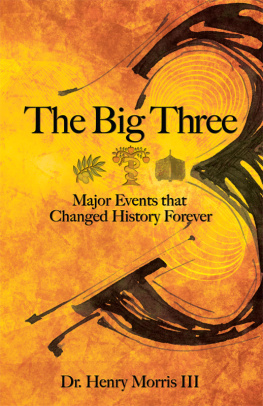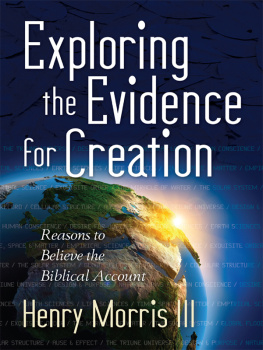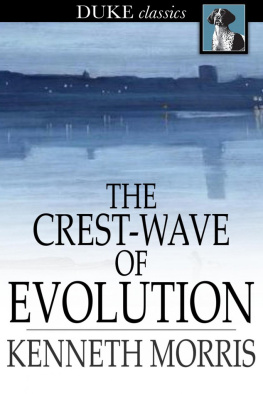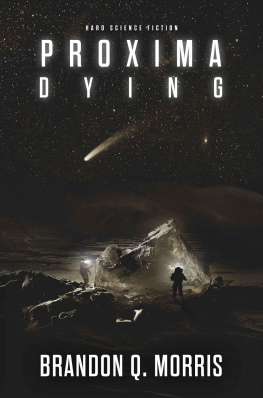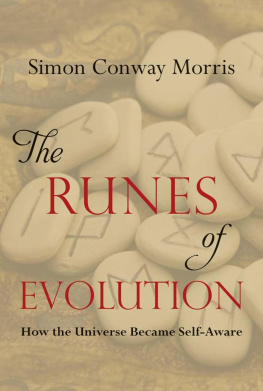THE
LONG WAR
AGAINST GOD
THE HISTORY AND IMPACT OF THE
CREATION / EVOLUTION CONFLICT
Dr. Henry Morris
Rochester, MN Public Library
Political Evolutionism Right and Left
It would be a matter of great concern even if evolution were used only as the theoretical framework for all the various disciplines of study, as discussed in the preceding chapter. Unfortunately, it has also been made the pseudo-scientific rationale for just about every political, economic, and social system that capitalizes on human greed and lust for power, resulting in suffering and death for millions of people during the past century.
Many of the conflicts in modern society are formulated in oversimplified two-sided termsleft versus right, liberal versus conservative, East versus West, communism versus capitalism, and so on. The remarkable fact, however, is that the philosophers on both sides of such conflicts commonly maintain that their systems are firmly grounded in evolutionary science. In this chapter we shall consider some of the more important of these systems.
The Tragedy of Social Darwinism
Charles Darwin had barely published The Origin of Species in 1859 before the industrialists of Englandand later, Americawere using it to justify their monopolistic practices, their exploitation of labor, and laissez-faire capitalism in general. The terms "struggle for existence," followed by "natural selection" and "survival of the fittest," which were intended by the evolutionary biologists as slogans to apply to organic evolution, were catch phrases that caught on quickly in industrial economics. The resulting system, which came to be known as "social Darwinism," was tremendously significant in the business, industrial, and political life of Europe and the United States for almost a century. This fact is an embarrassment to most modern evolutionists, who excuse it by saying it was due to a misunderstanding of evolution. If so, the leading evolutionists of the day, as well as their popularizers, all misunderstood evolution.
To some considerable degree, in fact, Darwinism was actually developed to justify the socio-economic-military beliefs and practices prevalent at the time. It came in the midst of an age of expansion and technological progress in the Western democracies, and sociologists found it easy to apply the Darwinian scheme to the perpetuation and extension of the existing system, thereby giving it a persuasive and supposedly scientific rationalization. The socialist Jeremy Rifkin makes the following incisive evaluation:
Darwin borrowed heavily from the popular economic thinking of the day. While by Darwin's own admission, Malthus's economic writings were a key influence in the development of his theory, Darwin was equally influenced by one of the other great economic philosophers of the eighteenth century, Adam Smith. An examination of Smith's and Darwin's writings shows how deeply indebted the latter was to the thoughts Smith penned in The Wealth of Nations, published in 1776.
A key component of Darwin's theory was the idea of the "struggle for existence" in nature, with animal populations growing more rapidly than the food supply, resulting in the reign of tooth and claw, and only the strongest surviving to reproduce. The very phrase "struggle for existence" was borrowed from Thomas Malthus's Essay on the Principle of Population.
Malthus argued that any proposed measures to improve the lot of the laboring classes would only encourage them to reproduce more and thus make the struggle for existence more severe than ever. Since populations always tend to grow faster than the food supply, there would always be too many people unless population growth could somehow be discouraged. Darwinas well as A. R. Wallace, Herbert Spencer, and others before themthen interpreted this as leading to the survival of only the "fittest," and thus eventually to progressive evolution.
Spencer applied the doctrine to human societies with a vengeance: "If they are sufficiently complete to live, they do live, and it is well they should live. If they are not sufficiently complete to live, they die, and it is best they should die."
It was Spencer who coined the phrase "survival of the fittest," and his sociology soon enjoyed a great vogue among laissez-faire capitalists, especially in America. R. Hofstadter, in his definitive work on social Darwinism, observes:
Spencer deplored not only poor laws, but also state-supported education, sanitary supervision other than the suppression of nuisances, regulation of housing conditions, and even state protection of the ignorant from medical quacks. He likewise opposed tariffs, state banking and government postal systems.
It is true that Spencer's evolutionary philosophy did envision the ultimate transformation of society for the good of all, but this would be accomplished by the very slow Darwinian process of small variations optimized by natural selection. Hofstadter elaborates:
A science of sociology, by teaching men to think of social causation scientifically, would awaken them to the enormous complexity of the social organism, and put an end to hasty legislative panaceas. Fortified by the Darwinian conception of gradual modification over long stretches of time, Spencer ridiculed schemes for quick social transformation.
To considerable extent, this Darwinian concept of struggle and survival seemed to support the Calvinistic (and biblical) work ethic that had played such an important role in the founding and development of the original American colonies and then the United States. Consequently, especially in an age of progress and the American Dream, it seemed to fit right in with the old virtues and quickly obtained a great following, especially among those who were its greatest beneficiaries.
According to Hofstadter, the nineteenth-century railroad magnate Chauncey Depew asserted that the men who attained fame, fortune, and power in New York City represented the survival of the fittest, through "superior ability, foresight and adaptability." Another railroad baron, James J. Hill, alleged that "the fortunes of railroad companies are determined by the law of the survival of the fittest."
Likewise, the legendary John D. Rockefeller, ruthless developer of one of America's greatest oil empires, and a staunch evolutionist, said: "This is not an evil tendency in business. It is merely the working-out of a law of nature and a law of God."
The equally legendary Andrew Carnegie, honored today for his philanthropies and devotion to culture, but cruel and heartless in his own day to competitors and laborers alike, commented in his autobiography, "I remember that light came in as a flood and all was clear. Not only had I got rid of theology and the supernatural but I had found the truth of evolution." Elsewhere he wrote, "[The law of competition] is here; we cannot evade it; no substitutes for it have been found; and while the law may sometimes be hard for the individual, it is best for the race, because it insures the survival of the fittest in every department."
Such beliefs were common among the industrialists and business men of the post-Darwin century:
Darwin's theory offered a resolution to humanity's perennial crisis of guilt. By proposing that each organism's drive for self-containment actually benefited the species as a whole, Darwin found a convenient formula for expiating the accumulating guilt of an age when self-interest and personal aggrandizement ruled supreme."
The bourgeoisie was in need of a "proper" justification for the new factory system with its dehumanizing process of division of labor. By claiming that a similar process was at work in nature, Darwin provided an ideal rationale for those capitalists hell-bent on holding the line against any fundamental challenge to the economic hierarchy they managed and profited from.





